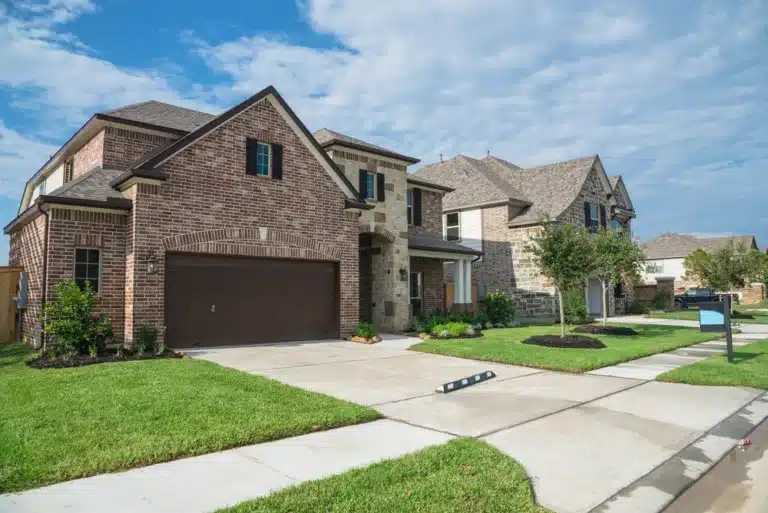Fees and expenses associated with finalizing a real estate transaction are called closing costs. Many first-time homebuyers are surprised to find out that closing costs are a thing at all. Then, they’re doubly-surprised to learn just how much of their home buying budget is going to go towards closing costs. It’s not unusual for closing costs to total 2% to 5% of the selling price of a home.
To add insult to injury, most first-time homebuyers don’t really understand what all the various fees and closing costs are actually for. Different lenders use different terms to describe fees that cover the same things. If this is your first time trying to make a real estate deal, closing costs can be really confusing and frustrating.
As a homebuyer, you won’t be able to avoid paying some closing costs. (Even so-called no-closing-cost mortgages aren’t free. Lenders simply roll the closing costs for your home purchase into the amount of money you’ll be paying back over the long haul.) But as a smart mortgage shopper, you can avoid paying excessive closing costs. And you don’t need to become some kind of mortgage expert to do it. You just need to understand what you’re looking to avoid.
Closing Costs, Demystified
So to begin, let’s start with some closing costs basics.
When a potential lender approves your mortgage application, you’ll receive a detailed loan estimate. This document outlines the exact terms of your mortgage. Your loan estimate includes things like the interest rate and APR for the mortgage.
The loan estimate should also include a detailed list of all the fees and closing costs you’ll need to pay to before you finalize your mortgage.
As we mentioned above, different lenders use different terms for the same sorts of fees. So this is one area where it makes sense not to get hung up on the vocabulary.
Your closing costs will probably include:
Loan fees – These are administrative fees your lender charges for creating and administering your mortgage. These might be listed as origination fees, application fees, underwriting fees, or some combination thereof. Basically, this is money you pay directly to your lender. It’s not unusual for loan fees to be listed as several line items in your loan estimate. So keep an eye out for lenders who tout no application fees, but have an unusually high underwriting fee.
Services required by your lender – Lenders want to be sure that the home you’re buying is worth the money they’re lending you to buy it.
But because banks and lenders are only really experts in the financial side of home buying, your mortgage lender will probably want the input of some other professionals on the value of your home and the potential risk your lender might face if they give you money to purchase it. That means you’ll likely be required to pay for an official appraisal of the value of your potential home done by a third-party.
There may be fees for surveying the boundaries of your property. Or fees for determining the risk of flooding or fire to your home. And there will likely be several separate fees for researching the title or tax status of your property.
Costs for appraisals, title searches, and document filing vary by state and by local municipality. If your cousin in Denver only paid $300 for an appraisal, but your mortgage lender thinks it’ll cost $500 for an appraisal in Miami, that doesn’t necessary mean you’re getting a bad deal. It could just be that $500 is the going rate in your community.
Also Worth Noting:
For many of the closing costs related to third-party services, you may be able to shop around and get a better deal than your mortgage lender’s usual go-to provider. Your loan estimate should have a section detailing which services you could potentially shop around for on your own. It may be worth the time and trouble to do so, depending on your situation.
Arrangements for taxes and insurance – As a homeowner, you’ll be on the hook for property taxes. Your lender will want to make sure that those taxes are going to be paid.
Lenders generally require homeowner’s insurance to protect the lender in the event that something terrible happens to the home. Depending on the terms of your mortgage and the rules in your state, you may be required to set aside a few month’s worth of property taxes in an escrow account, and pay fees for administering that escrow account. Homebuyers who put down less than 20% of the cost of their homes are usually have to pay additional mortgage insurance.
Everything else – The list above isn’t exhaustive. There may be other, miscellaneous fees for closing your mortgage. For example, if you’re moving into a condo, you’ll probably see homeowners association fees listed on your loan estimate.
And even within the same city or town, closing costs can vary based on the sort of property you’re buying. Condos, duplexes, and properties governed by homeowner’s associations agreements will have different closing costs than freestanding, unattached homes.
In trying to understand closing costs, the important thing to worry about isn’t so much what the fees are. The important thing is that the fees make sense.
The number of potential fees and names for fees is dizzying.
So read through the fine print of your mortgage offer carefully. If you don’t know what a fee is, ask your lender or broker. If they can’t or won’t explain a fee, you may want to go with a different lender.
How to Avoid Paying Too Much for Closing Costs
The trick to avoiding paying too much for closing costs is, conveniently, also the trick for avoiding paying too much for your mortgage: shop around and compare offers from different lenders.
If you only apply for a mortgage with a single lender, and you yourself aren’t a mortgage expert? Then it’s very easy to miss an unusual or outsized fee mixed in with all of the other legitimate and customary closing costs on your loan estimate.
But if you apply for a mortgage with more than one lender, you can you potentially find a better deal on your interest rates. And having multiple offers side-by-side will show you pretty quickly if a particular lender’s closing costs are in line with what other lenders in your area are charging.
Keep in mind, you can expect some variation in the pricing for closing fees. Perhaps lender A uses an appraiser who charges $300, and lender B uses an appraiser who charges $250.
And a lender with higher closing fees might still be the better choice if that lender is also offering you a better interest rate on your mortgage. When we’re talking about a loan that you’ll potentially be paying back over decades, even small differences in the interest rate can add up to tens of thousands of dollars.
But what if one lender in your area is charging a lot more for a particular fee than other lenders in your area? Or you spot a mystery fee that the other lenders don’t seem to be charging at all?
That could be a red flag. With multiple offers to compare, you should be in a good position to spot and avoid unreasonable closing costs.
So there you have it. If you want to save on closing costs without becoming a mortgage expert, get loan estimates from multiple lenders. Being able to spot unusual fees or outsized costs could save you thousands. You’ll feel better knowing you got the best possible deal.
If you are ready to get a mortgage, start here to compare and shop with Morty.






